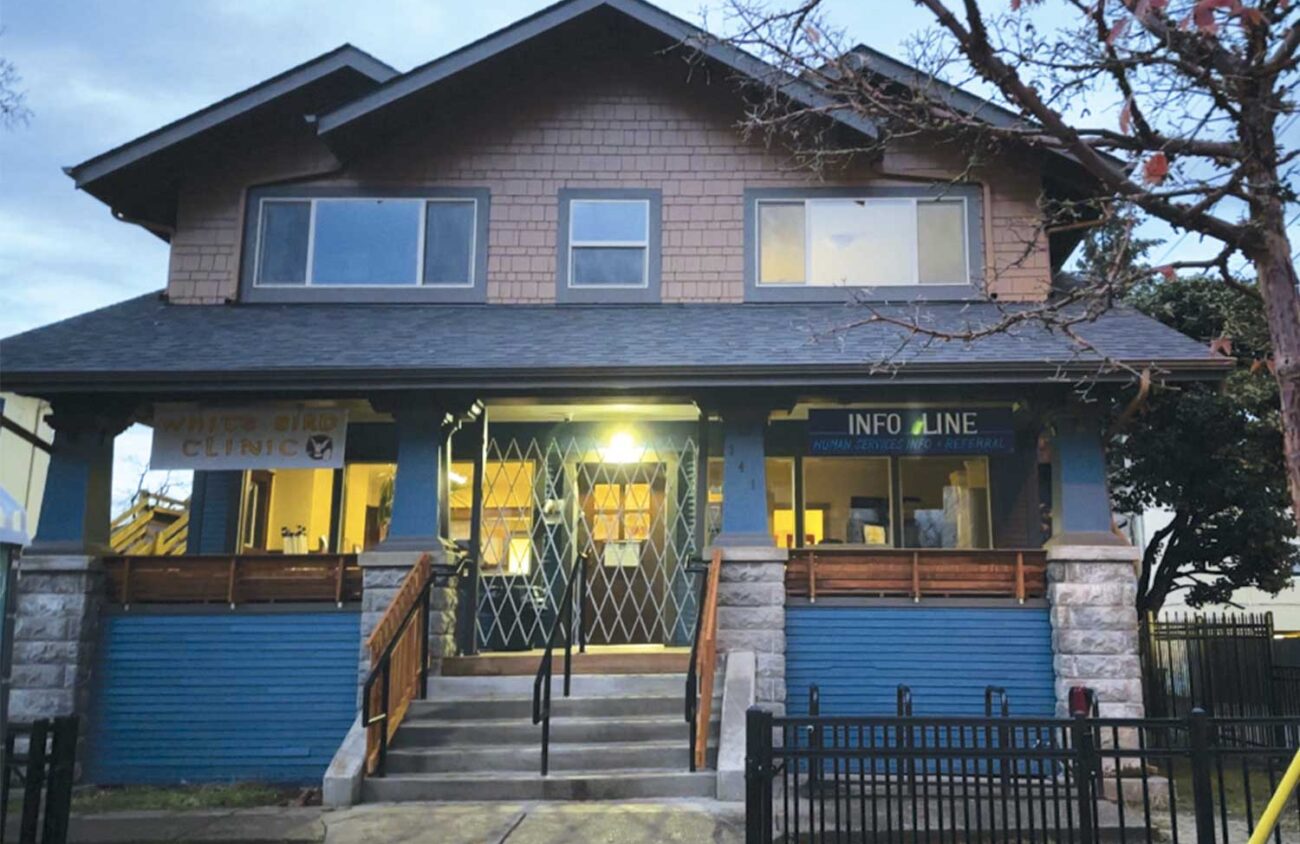White Bird Clinic Front Rooms employees say they’re still hitting the bargaining table this week despite Front Rooms’ impending closure. “There’s still a contract to finish,” says Jeremiah Perry-Weed, Front Rooms employee and union bargaining team member.
Since 2023, Front Rooms employees, represented by Teamsters Local 206, have been actively bargaining with White Bird Clinic leadership over their first contract.
However, the program’s employees say they don’t know what will happen to the services they provide or what to tell their clients after the nonprofit announced it would be closing the Front Rooms program on Dec. 13 due to budget concerns.
Front Rooms provides food, warm clothes and mail service with the lowest barrier to entry, Perry-Weed says.
While Perry-Weed says bargaining felt like it was progressing in good-faith, the timing of the closure of Front Rooms and laying off nine employees feels too convenient for White Bird management. “This will literally fire the majority of the bargaining committee,” he says. “There would only be one person left to bargain.”
That one person works in White Bird’s Navigation Empowerment Services Team (NEST). NEST provides wraparound support services, including case management and accessing primary medical care.
Perry-Weed says they were nearing the end of negotiations; most items had tentative agreements, except for wages. This would be Front Rooms’ first union contract.
CAHOOTS and HOOTS (24/7 mobile crisis intervention services across Lane County) are in a separate bargaining unit, while Crisis Services (a 24/7 over-the-phone mental health hotline) is its own bargaining unit.
While still hitting the bargaining table on Dec. 4, Perry-Weed says White Bird’s leadership’s assertion that Front Rooms must close due to a tighter annual budget is inaccurate.
Jeremy Gates, White Bird’s executive director, previously told Eugene Weekly that Front Rooms costs the clinic close to $1 million every year. But according to Front Rooms employees, the program costs less than half of that. Perry-Weed says their biggest expense, personnel, only runs about $432,000 annually. “Jeremy is saying that we’re costing $1.2 million, and that’s only if we have a full staff, which we never do,” he says.
Currently, Front Rooms employs eight full-time employees and one part-time employee. Full staffing would be closer to 15, Perry-Weed says.
However, Gates says in a follow up interview that adding on indirect expenditures, like administrative costs and human resources, the total increases to just shy of $1 million. “That’s what we were forecasting and budgeting for this year,” he says.
Gates says that even cutting off Front Rooms won’t be enough to make up their $2.9 million loss this year.
Even still, Gates says “We are cutting zero services.”
Perry-Weed and another Front Rooms employee, Maggie Weaver, wonder how that will happen.
“Jeremy says that the hub, the Harm Reduction and Treatment Center, is going to take on our gear distribution. They see 100 to 200 clients a week, and we see 100 to 200 clients a day,” Weaver says.
“No way they have the capacity to fulfill this,” she says.
With the closure of Front Rooms, Perry-Weed says the number of clients using other White Bird Clinic programs will decrease. “We answer all the phones for the agency. We triage all of the mail that comes in for the agency. We also are the first point of contact for clients. So a lot of our clients are ending up at our other locations because we do the referrals,” he says.
A Front Rooms employee takes four to six months to be fully trained on the program’s mail service — which it provides seven days a week. “They’re expecting to replace us with a single new staff member who will then know how to do all of this stuff within a week,” Perry-Weed says.
Front Rooms provides mail services to their clients at the lowest possible barrier he says, “You just walk up, give us your name, and then you’re good to go.” With seven-days-a-week mail service, Perry-Weed says it’s needed by clients who don’t have a home address to receive their Social Security checks, identification or any kind of correspondence.
Without proper training and a less accessible mail service, he says Front Rooms is worried about their clients losing their Social Security benefits. “It can take up to a year to get your benefits reactivated,” he says.
“What we’re looking at is the possibility of a negligent continuation of services that don’t actually work,” Perry-Weed says. “People in the middle of winter are getting their benefits cut off. I mean this will kill people.”
Weaver says Front Rooms hasn’t been told anything more about the closure than the public has. She says she’s worried because she doesn’t know what to tell the program’s clients.
“The leadership team hasn’t told us any plans either. Clients are coming in person and calling every day asking us what’s going to happen,” Weaver says.
“And we don’t even have an answer for them,” she says.
This story has been updated.
